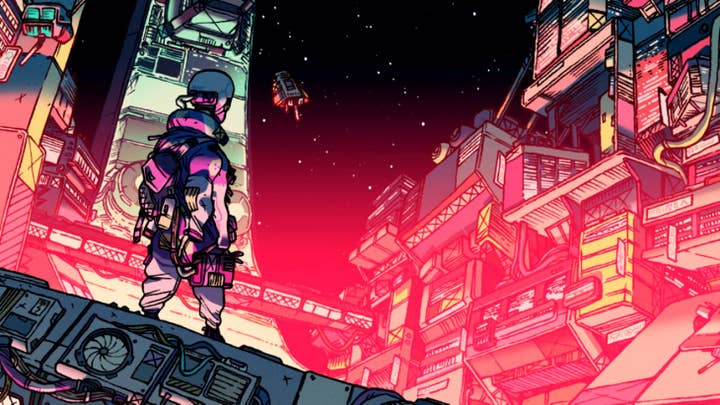How to get a job as a product manager
The GamesIndustry.biz Academy explores the routes into this sometimes broadly defined but business-driven and very crucial role
Finding a job is no easy task. Our guides can help you to find the right path to the games industry job of your dreams. You can read our other in-depth guides on how to get a job in the games industry on this page, covering various areas of expertise.
A product is defined as anything that has been made available for sale. In games, that can mean anything from the hardware to a physical retail game to digital or even services. Then of course, when it comes to a digital game, these can all differ in consumer base, whether it’s a free-to-play game or a hardcore genre title.
As such, being a product manager in games can mean different things depending on the product you’re working on.
Product manager is a relatively new role in the history of video games that can often be more associated specifically in the mobile live-service free-to-play space, where the product is constantly evolving and player growth and retention is paramount. However, product managers can also be found in game publishers, whether it’s for small boutique indies or larger established IP.
"If your goal is to have your own studio someday, product manager is great [experience] for that"
Mitchell Smallman, Pocket Burger Games
For that reason, we spoke to a variety of product managers, including Pocket Burger Games CEO and co-founder Mitchell Smallman, whose product management experience includes mobile studios like Rovio, Space Ape and Netspeak Games, and Ben Pollock from narrative indie publisher Fellow Traveller, where the product manager role was only introduced in 2021, and others of varying levels of experience and seniority who all came to this role in different ways.
The exact role of a product manager and where they’re positioned will vary from company to company. You might be the sole product manager at your studio, or in a team of them, but the role will nonetheless share some similarities.
“A product manager role can be quite flexible in the core discipline that you have, but it requires a willingness to envisage a product's lifecycle,” says Pollock.
Smallman would summarise the role as being someone who manages the business of a game. “For mobile free-to-play, there are a lot of moving parts in terms of the live service, but if you're in console, it is going to be more of a marketing position,” he says. “But it all falls under things where you’re responsible for how well this game does as a business.”
With that in mind, we can move on to explore just what you need if you want to become a product manager in games and whether it’s a role you can envision yourself in.
- What education do I need to get a job as a product manager?
- What experience do I need to get a job in product management?
- What qualities and skills do I need to be a product manager?
- What are the common misconceptions about product management?
- What are the career progression opportunities of a product manager?
- Advice and resources for new and aspiring product managers
What education do I need to get a job as a product manager?
As a business-oriented role that also sometimes falls under marketing, a straightforward educational pathway to becoming a product manager would be to study for a business or marketing degree at university. But while this has been suggested by some of our interviewees – a few of which have also gone to obtain an MBA – it is also by no means essential.

“I come from a theatre and writing background,” says Smallman. “I know lots of people in product that come from all sorts of different backgrounds.”
That’s certainly the case with some of our interviewees, including Pollock who graduated in video production with an interest in filmmaking, while Krystal Ramsey, product marketing manager at Secret Mode but who has also been a product manager in the beauty sector and a tabletop gaming company, graduated in journalism.
“Business, particularly digital, is an ever-evolving industry, and a formal education can be switched for industry relevant experience,” says Ramsey. “I by no means had a traditional pathway into the games industry or into product management, but I knew where my passions were, so I was clear on my ambitions.”
For those who can afford the higher education path, you also needn’t pursue a business or marketing degree. As the role is very data-driven, Nathan Williams, a senior product manager at 2K, recommends any qualifications that will have you “versed in the scientific method”, be it in Math, Computer Science, Economics, or other hard sciences. He nonetheless adds that many product managers do come from different paths, “each bringing their own valuable unique experience. Some were previously in QA or were producers, product marketing, or engineers.”
What experience do I need to get a job in product management?
Product management is a role that many people, including many of our interviewees, often find their way into during their games career, not to mention it’s still something of a new role in parts of the industry.

“When I first started, it was very new,” says Smallman. “But nobody who wants to work in video games says, ‘I want to work with spreadsheets and data!’ It's not the sort of dream that kids come out of school doing.”
With his background in writing, he started out in game design and writing content, but that led him to managing the game content, which in turn led him to understanding how that content was performing: “I found not only affinity for that but a demand for that.”
That’s not to say you need to have gained experience in the games industry to move into a product management role. While a graduate in marketing and marketing management, Bandai Namco's digital sales and product manager Gabriel Collins worked many jobs before landing first a marketing executive role at the publisher.
“I have worked pretty much since I was 15 in lots of different jobs – hospitality, warehouses, retail – after university, I worked in customer service at a telecoms company... so a pretty far cry from gaming,” he says. “Where I perhaps stood out in my CV was that I had written my dissertation on video games marketing, I think that helped. I had also started a small business at uni, which again may have helped my chances.”
"A lot of things are flying your way constantly so you have to have a system to deal with working on multiple requests and jobs at the same time"
Gabriel Collins, Bandai Namco
Ramsey also believes her different jobs have all helped her acquire professional skills and behaviours for her product roles in games. “I started in customer service to learn communication skills. I trained in analytics and reporting and worked in an operations team assisting on project management, then moved into social media and community, where I put my communication and analytical skills to use,” she explains. “From there I worked closely with brand and marketing managers, learning the skills that would help me evolve my experience of product ownership.”
In essence, you don’t need specific games or product experience to acquire transferable skills for product management. Arguably more important is having a passion for the product itself.
“The passion is the important part -- that’s what you need to thrive," says Ramsey. "Product management is competitive, fast-paced, and often has a hefty constantly changing workload, so being able to prioritise, deliver to deadlines efficiently and juggle multiple tasks is important."
From Pollock’s own experience of starting in games PR for THQ in the early noughties, then over a decade in publicity and product management in film distribution before finally making his way back to games, he describes his pathway more succinctly: “I just envisaged myself working somewhere, the opportunity came up, and I had the right skill sets.”
What qualities and skills do I need to be a product manager?
While we have talked about how many jobs can help build your skillset for becoming a product manager, and product managers can come from a diverse range of backgrounds in terms of experience, it’s still important to nail down just what specific skills will be important in succeeding as a product manager.
Here’s what was fairly consistent with our interviewees:
Math and scientific analysis
“Learn to love spreadsheets!” says Smallman, despite admitting he doesn’t come from a math background. “There is no product manager I don't know that doesn't encounter a place where they have to prove things with math and translate things with math.”

Besides using Excel, Williams adds that his role often requires him to discover insights using modelling of game systems, pivot tables, probability and statistics, and Monte Carlo simulations – all of which comes back to using the scientific method.
“Form a hypothesis based on data to identify a problem; break the problem down into its component parts and fundamental assumptions; design a test to validate the core hypothesis in a way that mitigates risk; learn from the results of the test and share to drive product improvements; repeat.”
Data analysis is another key part of the day-to-day job, and while it can mean you only need to communicate with people who work directly with the data rather than having SQL (Structured Query Language) skills, it’s regarded as a definite bonus for product managers who do.
Communication and presentation skills
Having a communication and writing background is important but more specifically, a product manager has to be able to communicate strategy with roadmaps reports. These might cover the lead up to the launch of a product, analyse how it has performed post-launch, or envision its lifecycle – whether that’s with ports, localisations, expansions, or special limited releases for a single title, or a constantly evolving game that’s to meant last for years.
"Being flexible is extremely important too, as priorities, deadlines and milestones can all change daily"
Krystal Ramsey, Secret Mode
In Pollock’s case as a producer manager for many narrative indie titles created by a diverse range of developers, he adds it’s also important to empathise with creatives when giving feedback so that you understand where they’re coming from. “People with different backgrounds have different needs and priorities that they want to communicate in their game, so you have to be adaptable,” he says.
Conversely, Smallman says that the product manager is also often the bearer of bad news for the developers, so when it comes to making hard decisions, you also need to be a strong communicator but without any ego.
“It's not a really good job for somebody who wants to enforce their will and creativity on a game,” he explains. “It's about finding the truth about your player base and finding the truth about the design and how your game is doing. You have to translate often nebulous concepts into clear actions and have people go, this is the right thing to do. Communicating business needs, to both management in terms of what the team is doing and to the team in terms of how the game is performing, is an essential skill."
Organisational skills
If you’re working on a mobile product that’s envisioned to last for years with numerous updates and events, you definitely need to be able to plan ahead, especially to avoid long-term problems. But even just working on a product’s launch is going to take months of planning.
“A lot of things are flying your way constantly so you have to have a system to deal with working on multiple requests and jobs at the same time,” says Collins.
What are the common misconceptions about product management?
The broadness of the role, depending on the company you’re working for, means it’s very easy to get confused over what a product manager does – even for those in the games industry. Some consider it as just a part of marketing while others may assume it’s production-based.
In the mobile space, one very common misconception about product managers is that they only care about monetisation.
"Understanding the business side of games is a crucial skill to success at every level"
Nathan Williams, 2K Games
“[People think] we only care about squeezing as much money as possible from players, but good product managers balance the needs of the business and the players,” says Williams, who is currently working on a new mobile game based on one of 2K’s existing IPs. “Without players there is no business and without business there is no game for players to play. Both are needed in equal parts, so we watch both metrics equally.”
Smallman adds that good product managers will care about the long-term health of a game rather than trying to implement decisions that secure short-term profit at the expense of angering the community.
“Monetization is important in free-to-play but we're not psychologists thinking about ways to extract more money from people with tricks to make people addicted to things, that's not what product managers do,” he says. “Any PM that thinks like that doesn't last very long.”
Another misconception is that, perhaps because a product manager’s role isn’t always understood, it’s that other people don’t realise how much workload they have, according to Ramsey.
“It can be easy to assume that product managers have an easy ride because they ‘just produce the creative fun stuff and get to watch a game get made’, but there’s a lot of risk mitigation, legal and compliance, as well as budget management and working closely with several teams managing a project with multiple moving parts,” she explains.
What are the career progression opportunities of a product manager?
While it can be the case that product management positions seem rare in games, Smallman says people often assume it’s just one person and that it’s a role people get into and then move onto something else.

“It is a field, so you can be a junior product manager, a senior product manager, or someone who's managing a portfolio of perhaps three or four different games at a director level,” he explains.
Of course, that does depend on the size of the company. Fellow Traveller, for example, only created the role last year, consisting of Pollock and one other colleague, while a larger company might have a team of product managers.
“Product managers have a great career progression within game companies,” says Williams. “They can grow to become directors of product to be in charge of particular games or studios of multiple games or whole divisions as VPs. Understanding the business side of the games industry as well as how to influence, leverage, and motivate other game disciplines to make compelling and successful games is a crucial skill to success at every level.”
In some companies, it might even be possible to become Chief Product Officer (CPO), but it also doesn’t end there – you could go onto run your own game studio, which is what Smallman has done as CEO and co-founder of Pocket Burger Games.
“If you want to run your own business in games, by managing the business of games for a long period of time, it gives you a bunch of those skills to help with that,” he adds. “So if your goal is to have your own studio someday, then product is a great area for that.”
Advice and resources for new and aspiring product managers
Know your product
While a product manager could feasibly go from one role to another, it doesn’t mean that product manager will be right for the other role. In the mobile free-to-play space, for example, one could be managing a casual game with millions of users while another handles a hardcore game with a dedicated player base in the tens of thousands. For anyone looking to get into the role, passion for that product is most important.

“You've got to have a passion for and an opinion on the industry that you want to work in,” says Pollock. “Just a good understanding of the landscape, like distribution platforms, partner stores, general product knowledge, knowing what other games are out there, what they're doing, how they're promoting them.”
Smallman adds, “If somebody's interviewing for a junior product position, and they have a really, really good breakdown of a game that's doing well that I haven't seen or a different take, that's a great way to prove your knowledge of the product, that system design, that market analysis, and your ability to grab data from public sources."
Always be learning
2K's Nathan Williams urges aspiring product managers to "learn as much as possible from everyone from every discipline" in order to understand the fundamental principles of each one.
While our interviewees have said that you needn’t have specific qualifications or a definite pathway to product management, there are nonetheless skills you need to acquire, and you should always be curious and striving to learn.
“Create a free Mailchimp or Canva account, PowerPoint, get Photoshop, learn the creative skills as well as the product and analytical skills,” says Ramsey. “I created marketing campaigns for imaginary products to build up a portfolio of my creative skills, and built timelines and Gant charts to show project milestones and management strategy to take to my first job interviews – it helped a long way to demonstrate the skills I was talking about.”
You can also learn from other product managers, by following and connecting with them on LinkedIn, many who Smallman says like to blog and share their thoughts. Adding to that, Williams says, “Each [product manager] likely has a different background so brings a fresh perspective.”
Just get out there
Ramsey says a key part of finding your way into a product manager role is to “network, create and just get out there.
"A product manager role can be quite flexible, but it requires a willingness to envisage a product's lifecycle"
Ben Pollock, Fellow Traveller
"The digital world has brought the entire globe and beyond to our fingertips," she continues. "Start a blog, write about games, get to know products. Understand their journey in marketing, their model, the production, the milestones, the community presence – it’s all helpful. Create a LinkedIn, join groups, follow people and posts, connect (safely), and start talking about your passion for games.”
Smallman adds: “I would say it's a very high demand industry but pretty dominated by white men, and it doesn’t have to be. There's just not a lot of people going for it, or maybe a lot of impostor syndrome. I say get over that, just get the skills, talk to product managers, and read from the ones who are writing things.
"We need a whole lot more so if people think they can't do it, I promise you have a shot if you have a genuine interest in it.”
Resources
Most of our interviewees didn’t cite many specific resources although reading widely gaming and marketing blogs and websites – including GamesIndustry.biz – were recommended, as well as finding online games industry groups via LinkedIn.
Smallman incidentally advises that LinkedIn is the best social media platform for learning from product managers: “Find a studio you're most interested in, find their product manager, follow them and I guarantee you'll get their thoughts over a period of time.”
Nonetheless, we were able to pool together some suggestions, including a few books on product management, albeit not specifically related to product management in games.
Recommended reading
- Product Management’s Sacred Seven: The Skills Required to be a World-Class PM by Parth Detroja
- Predictably Irrational: The Hidden Forces That Shape Our Decisions by Dan Ariely
- Contagious: Why Things Catch on by Jonah Berger
- Influence: The Psychology of Persuasion by Dr. Robert Cialdini
- Hooked: How to Build Habit-Forming Products by Nir Eyal
- Cracking the PM Interview: How to Land a Product Manager Job in Technology by Gayle McDowell and Jackie Bavaro
- Sprint: How to Solve Big Problems and Test New Ideas in Just Five Days by Jake Knapp
2K Games' lead product manager Vic Bekarian adds: "Experts have assembled research and the findings of multiple studies into powerful summaries that product managers use frequently in our framing of user needs and product alignment to those needs.
"Predictably Irrational and Contagious are great examples of understanding user and consumer behavior across easily relatable models of engagement. Influence and Hooked are excellent guides to creating or driving user behavior as it relates to the way they engage with products that “ask” and reward users for meeting the 'ask.'"
"Meanwhile, Sprint is a favorite among PMs who look for the fastest and most effective ways to connect consumer insights to meaningful product design and a crash course in human-centered design that anyone can benefit from. If all of this interests and excites you, Cracking the PM Interview lives up to its name and is a great primer for what to expect as you launch your product career."
Online resources
- Product School, a YouTube channel with video and webinars for people looking to get into or transition into product management.
- Deconstructor of Fun, blog, newsletter, podcast and Slack group for games professionals, described by Smallman as a ‘litmus test’ - “If you read it and it doesn't sound like that's how you want to talk all day, then maybe PM is not for you.”
- Machinations.io, online tool for predicting game economies, including for premium, free-to-play, and play to earn.
- GameDiscoverCo, providing analysis, data and insight about how people find and buy video games, with a newsletter you can register for.
- How To Market A Game, website from game designer/game marketing consultant Chris Zukowski
More GamesIndustry.biz Academy guides to Working in Games
Our guides to working in games cover various perspectives, from hiring to retention, to landing the job of your dream or creating the right company culture:

